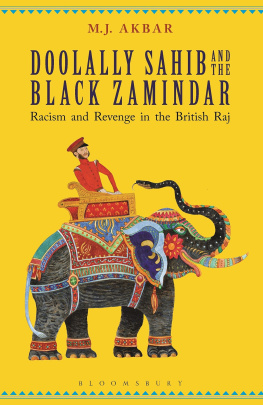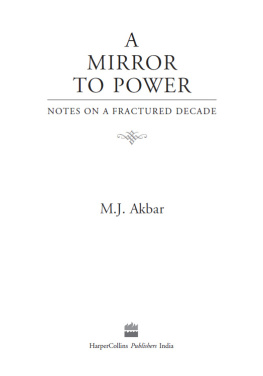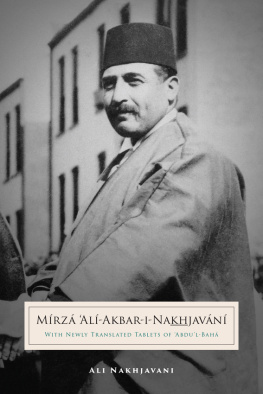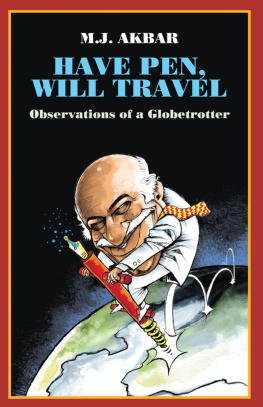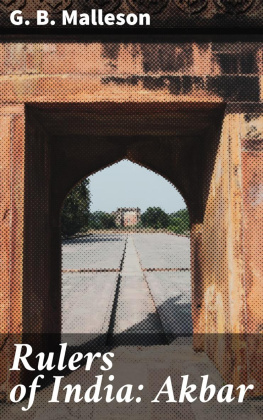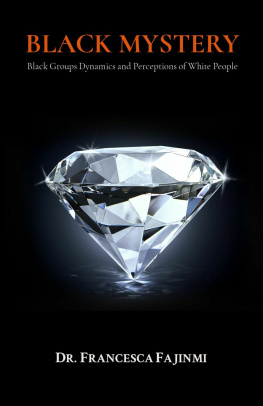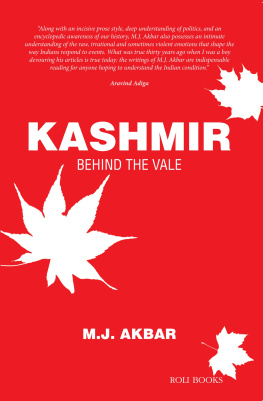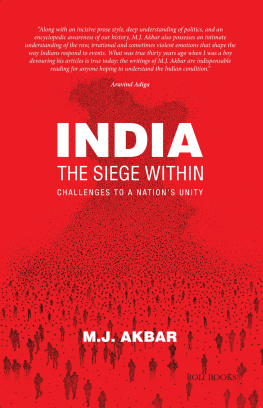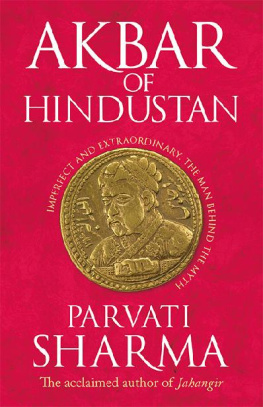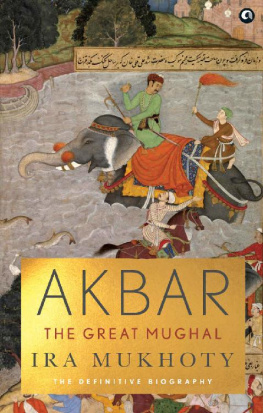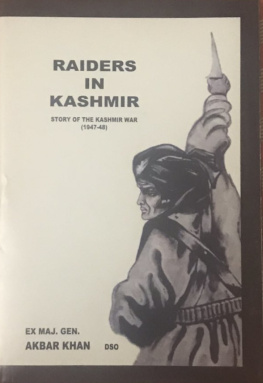M J Akbar - Doolally Sahib and the Black Zamindar: Racism and Revenge in the British Raj
Here you can read online M J Akbar - Doolally Sahib and the Black Zamindar: Racism and Revenge in the British Raj full text of the book (entire story) in english for free. Download pdf and epub, get meaning, cover and reviews about this ebook. year: 2022, publisher: Bloomsbury Publishing, genre: Art. Description of the work, (preface) as well as reviews are available. Best literature library LitArk.com created for fans of good reading and offers a wide selection of genres:
Romance novel
Science fiction
Adventure
Detective
Science
History
Home and family
Prose
Art
Politics
Computer
Non-fiction
Religion
Business
Children
Humor
Choose a favorite category and find really read worthwhile books. Enjoy immersion in the world of imagination, feel the emotions of the characters or learn something new for yourself, make an fascinating discovery.
Doolally Sahib and the Black Zamindar: Racism and Revenge in the British Raj: summary, description and annotation
We offer to read an annotation, description, summary or preface (depends on what the author of the book "Doolally Sahib and the Black Zamindar: Racism and Revenge in the British Raj" wrote himself). If you haven't found the necessary information about the book — write in the comments, we will try to find it.
M J Akbar: author's other books
Who wrote Doolally Sahib and the Black Zamindar: Racism and Revenge in the British Raj? Find out the surname, the name of the author of the book and a list of all author's works by series.
Doolally Sahib and the Black Zamindar: Racism and Revenge in the British Raj — read online for free the complete book (whole text) full work
Below is the text of the book, divided by pages. System saving the place of the last page read, allows you to conveniently read the book "Doolally Sahib and the Black Zamindar: Racism and Revenge in the British Raj" online for free, without having to search again every time where you left off. Put a bookmark, and you can go to the page where you finished reading at any time.
Font size:
Interval:
Bookmark:
DOOLALLY SAHIB AND THE
BLACK ZAMINDAR
DOOLALLY SAHIB AND THE
BLACK ZAMINDAR
Racism and Revenge in the British Raj
M.J. AKBAR

BLOOMSBURY INDIA
Bloomsbury Publishing India Pvt. Ltd
Second Floor, LSC Building No. 4, DDA Complex, Pocket C 6 & 7,
Vasant Kunj, New Delhi 110070
BLOOMSBURY, BLOOMSBURY INDIA and the Diana logo are trademarks of Bloomsbury Publishing Plc
First published in India 2022
This edition published 2022
Copyright M.J. Akbar, 2022
M.J. Akbar has asserted his rights under the Indian Copyright Act to be identified as the Author of this work
All images courtesy Wiki Commons unless otherwise specified.
All rights reserved. No part of this publication may be reproduced or transmitted in any form or by any means, electronic or mechanical, including photocopying, recording, or any information storage or retrieval system, without prior permission in writing from the publishers
This book is solely the responsibility of the author and the publisher has had no role in the creation of the content and does not have responsibility for anything defamatory or libellous or objectionable
Bloomsbury Publishing Plc does not have any control over, or responsibility for, any third-party websites referred to or in this book. All internet addresses given in this book were correct at the time of going to press. The author and publisher regret any inconvenience caused if addresses have changed or sites have ceased to exist, but can accept no responsibility for any such changes
ISBN: HB: 978-93-54355-27-1; e-Book: 978-93-54355-28-8
To find out more about our authors and books, visit www.bloomsbury.com and sign up for our newsletters
For Gazala and Lokesh Sharma,
my sister and brother-in-law,
with more love than words can express
This is a masterly book, with fresh insights and sound conclusions. It is judgmental in a very sophisticated way. Finally, no similar book has ever been written.
K. Natwar Singh, author and former Minister for
External Affairs, in Hindustan Times
The book intricately explains the events leading to partition between 1940 and 1947, by conducting a thorough investigation from archives and original sources.
By doing this it also contrasts the ideological belief of Gandhi (who believed in faith, civilizational harmony) and Jinnah (who believed in a nation based on religion). I am enjoying reading your book.
Sharad Pawar, former Chief Minister of Maharashtra, Union
Minister for Defence and eminent national leader
The book tells history as if it were a story. The heavy underpinning of information from various archives and primary sources makes the reader familiar with facts that are frequently ignored by professional historians in their writings on the events of the Partition of India.
The Tribune
M.J. Akbars book is a labour of love suffused with enviable erudition.
Ishtiaq Ahmed, Professor Emeritus of Political Science,
Stockholm University, Daily Times
M.J. Akbars latest book, Gandhis Hinduism the Struggle Against Jinnahs Islam, offers a unique perspective, laced with interesting anecdotes, of a largely familiar narrative, by juxtaposing the contrasting roles of Gandhi and Mohammed Ali Jinnah in...
Deccan Herald
The book analyses both the ideology and the personality of those who shaped the fate of the region, and spells out the blunders, lapses and conscious chicanery that permeated the politics of seven explosive years between 1940 and 1947.
India Today
In this tale, there are no heroes; only villains. The British justification for Partition was that pre-Partition Indian leadership could not agree among themselves. That, in essence, was why it happened. Akbar breaks idols and shreds received wisdom in this authoritative book.
The Statesman
Akbar tells this story with his usual diligence about facts and facets and his customary lucidity.
Business Standard
Akbars latest book, Gandhis Hinduism the Struggle Against Jinnahs Islam is a brilliant read and offers some of the most interesting, exclusive details of events leading to Indias independence.
Sunday Guardian
The pandemic of the last two years has been shadowed by a constant ache: Mallika and I have been unable to meet our delightful and loving grandsons Julian and Kayan, our beautiful (if occasionally stern) daughter Mukulika and her husband Carl Nordenberg who has become such a good friend over many a spirited evening. They live in Singapore. Technology has elided across time and space, but, paradoxically, the net effect is also a reminder of the warmth we have missed because of distance. Hopefully, 2022 will release us from the fetters of contagion.
The great enchantment of these years was watching our third grandson, Agastya, turn from an infant into a child whose innate intelligence began to filter into observation, perspectives, and conversation, while his emotions matured into love for his Papa, Prayaag, his Mama, Shanta, his Didi Pushpa, and for his grandparents. Is there any phase of life more exciting than the transition from 18 to 42 months? For Mallika and me, being with Agastya, Shanta and Prayaag at our home in Goa was a joy. It helped hugely in the making of this book as well.
All through the painful pleasure of the writing process, Mallika was a continuous reference point. When she did not like a passage she was candid with her softly spoken and sharply effective remarks. Mallika is the anchor of love which sustains our family in an embrace which includes my beloved elder sisters Sajda Baji in Patna, Wajda Baji and Saadat Baji in Kolkata, and Mallikas brother Dr Madhu John in California.
I cannot sufficiently thank Paul Vijay Kumar of Bloomsbury for his quiet persistence and assistance in the evolution of this book; and am beholden to Rajiv Beri, who heads Bloomsbury in India, and the gracious Prabir Bambhal, for their trust and encouragement. Ravi Mishra gave invaluable help from one of the finest libraries in Delhi.
I am deeply grateful to my sagacious elders Ajit Doval and Nripendra Mishra for their affection and their advice. This has meant more to me than perhaps they realise. Each of my regular conversations with Kunwar Natwar Singh, who has always indulged me with a benevolent and affectionate eye, left me with greater knowledge and more understanding. Thank you, sirs.
Friends are the nurture of life, and one feels blessed thatcovid notwithstandingthe circle has grown: Habib Rehman, Sunil and Geeta Gujral, Tapan Chaki, Rani Mitra, S. Prasannarajan, Tony Jesudasan, Arif Vazirally, Y.S. Chowdary, Kiran Vadodaria, Subhash Chandra, Rajeev Shukla, Chuti Ray, Rajni and Vidya Gupta, Devesh Kumar, Manjushri and S.M. Basu, Mohandas Pai, Suman Bhattacharya, Freddy Svagne, Gopal Hosur, Naresh Gujral, Satpal Malik, Satish Gupta, Ranjan Bhattacharya, Jamshed Zaidi, Anil Bhasin, Veenu Sandal, Ranjan Mukherjee, Anil Shetty, Tariq Mansoor, Bilahari Kausikan, K.P. Nayar, Preet Malik, Ashok Swarup, Praveen Saini, Rajinder Chaudhury, Manoj Arora, Darren Rickards, Lakshman Menon, Rahul Bhatia, Gautam Kapoor, Prof. Dheeraj Sharma, Jawid Laiq, Pankaj Mehra, Partha Mitra, Shashi Shrivastava, Apurba Jasraj, Omer Haider, Alok Banerjee, Abdul Khaliq, Virendra Kapoor, Surya Prakash, Majeed Memon, Tayyab Khan, Joyeeta Basu. There are so many friends to whom I owe a particular debt, and each will know why: Shobhana Bhartiya, Raian Karanjawala, Rajiv Nayar, Sanjiv Goenka, Geeta Luthra, Sandeep Kapur, Ram Madhav, Rajiv Kapoor, Tejinder Singh, Naem Nizam, Akash Chopra, Awanish Dwivedi, Vishveswar Bhat.
Next pageFont size:
Interval:
Bookmark:
Similar books «Doolally Sahib and the Black Zamindar: Racism and Revenge in the British Raj»
Look at similar books to Doolally Sahib and the Black Zamindar: Racism and Revenge in the British Raj. We have selected literature similar in name and meaning in the hope of providing readers with more options to find new, interesting, not yet read works.
Discussion, reviews of the book Doolally Sahib and the Black Zamindar: Racism and Revenge in the British Raj and just readers' own opinions. Leave your comments, write what you think about the work, its meaning or the main characters. Specify what exactly you liked and what you didn't like, and why you think so.

